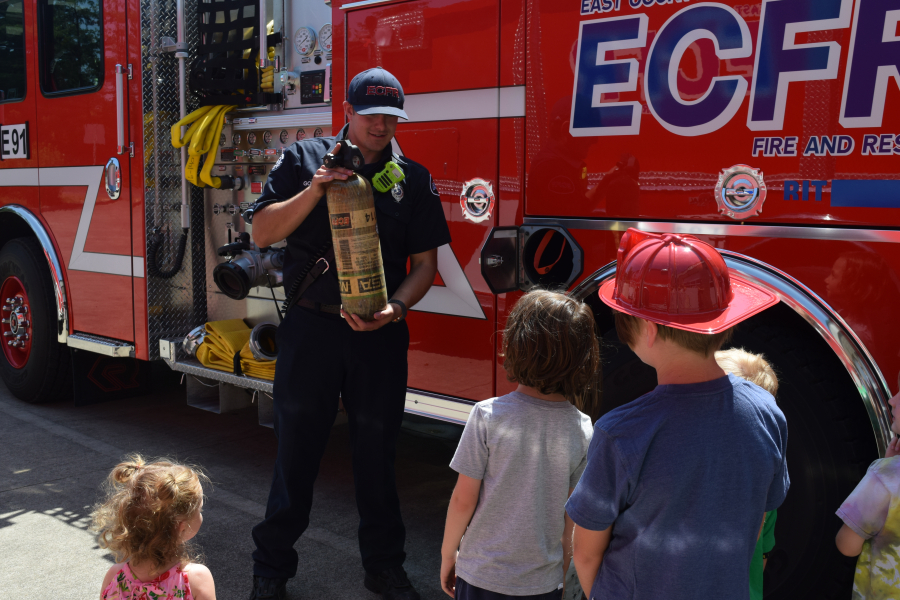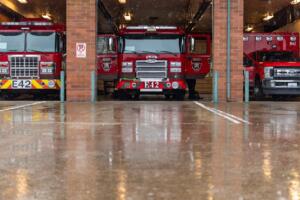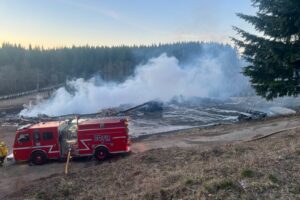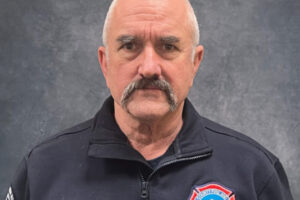During pre-COVID-19 times, the East County Fire & Rescue board of commissioners’ special meeting to discuss staffing issues would likely have been standing-room only. Instead, when callers joined the virtual board meeting on Monday, Nov. 9, a voice simply announced: “There are more than 20 participants in the meeting.”
Most were there for just one reason: to urge the commissioners to approve a request for staffing funds that would avoid the “browning out,” or temporarily closing, ECFR’s two main fire stations — Station 91 north of Camas near the Grove Field airport and Station 94 north of Washougal in the Mount Norway area.
“The reason we’re here is that we’re looking to make a decision to keep both stations open 24/7,” exECFR Fire Chief Mike Carnes told the board of commissioners and community members on Monday.
A series of unexpected staffing challenges — including an off-duty fire captain injured in mid-October while helping at the scene of a traffic accident — led to an uptick in the district’s overtime staffing costs.
“We’ve been very, very fortunate that we haven’t had many injuries or big illnesses,” Carnes told the Post-Record last week. “But we ran into some staffing issues this year … we had a couple firefighters who resigned to take other jobs. We had a firefighter get injured. And a couple out on paternity leave.”





